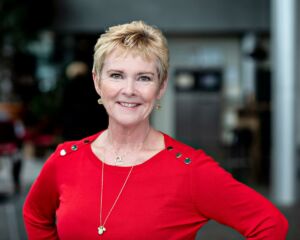News
Responses to Denmark’s latest big #MeToo scandal range from disbelief to anger
This article is more than 2 years old.
News that powerful union boss Lizette Risgaard has apologised for touching young men inappropriately rattled many cages today

Lizette Risgaard. Photo: FH
Frank Jensen, Naser Khader and Morten Østergaard are just a few big names in Denmark who had notable careers scuttled after being embroiled in #MeToo cases.
Jon Stephensen from Moderaterne is fighting for his political career as we speak following a similar case.
But few people could have predicted the news today that FH trade union boss Lizette Risgaard has been accused of touching young male staff members in an inappropriate manner for years.
Risgaard is not only among the most powerful women in Denmark, but she has also been a vocal supporter of the #MeToo movement.
Dennis Kristensen, who led the union FOA from 2002 to 2018, was shocked at the revelations, given FH and Risgaard’s track record.
“Damn it, Lizette,” Kristensen wrote on social media, his words followed by a teary-eyed emoticon.
“FH were good and consistent participats in the #MeToo campaign’s display of unacceptable behaviour displayed by those in powerful positions. You handled that well and now FH is in the spotlight for those very same reasons and you’ve admitted to taking part yourself. That’s just too mind-boggling.”
READ ALSO: Union boss accused of inappropriate behaviour
Keeping her job … for now
Following the news this morning, an external investigation into the case was launched by FH, in order to shed light on the accusations.
The investigation is expected to be swift in order to get to the bottom of the allegations as quickly as possible.
In the meantime, though, she will remain in her position as the head of FH – a decision that hasn’t been well-received in all quarters.
For instance, Fagbevægelsens Ungdom, the umbrella organisation for union youth members, stated that Risgaard’s behaviour should lead to her dismissal.
One of the biggest unions in Denmark, HK, has announced that it will hold an extraordinary board meeting at 13:00 to discuss the matter.
The head of the union’s trade department in Copenhagen, Sofie Berg Axelsen, fumed on Twitter that Risgaard shouldn’t be allowed to continue on as the leader of FH.
“Obviously, one can’t be the head of FH Denmark with these cases. Zero tolerance also encompasses our own ranks,” wrote Axelsen.










































